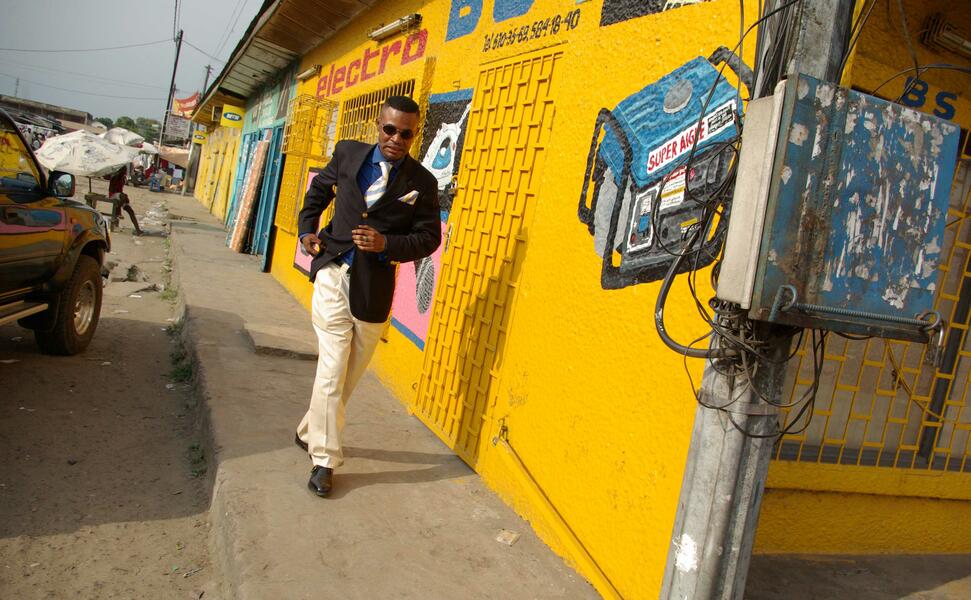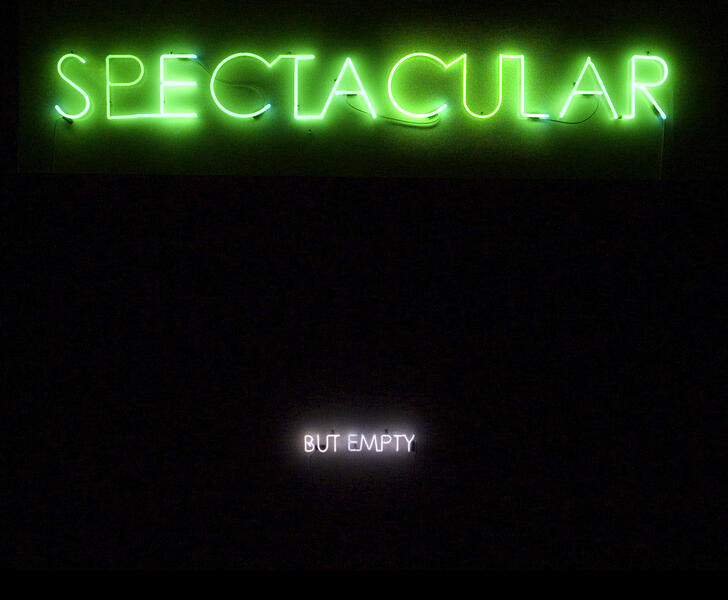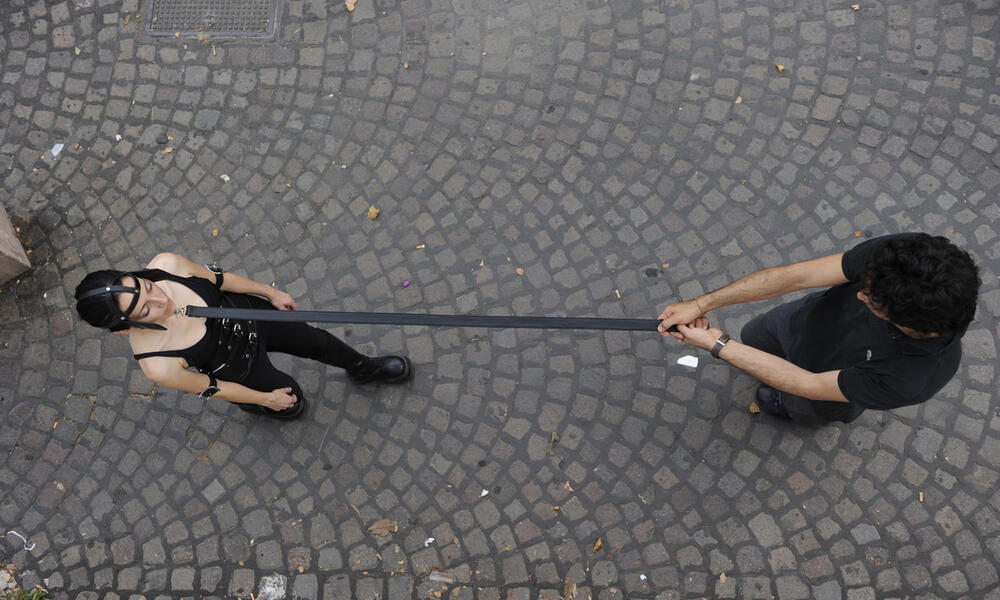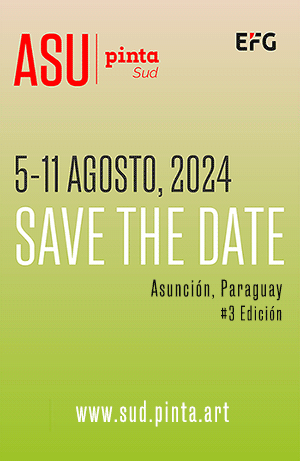Coca-Colonized: Relationship Among Mass Culture and Art From on Developing Regions
Hilger BrotKunsthalle from Vienna, Austria, is pleased to announce the opening of Coca-colonized* curated by South African-born curator Claire Breukel and featuring nine artists from South America, Central America and Africa, responding to what it means to live and work beneath‘ their first world Northern counterparts (specifically North America and Europe). The exhibition explores how the influence of mass media (*coca-colonization) on these more developed‘ regions has, through a generation, integrated with local culture to create a third new‘ identity a metamorphosis that is globally aware as well as desirable in its local interpretation, cultivating a palatable exoticism‘.
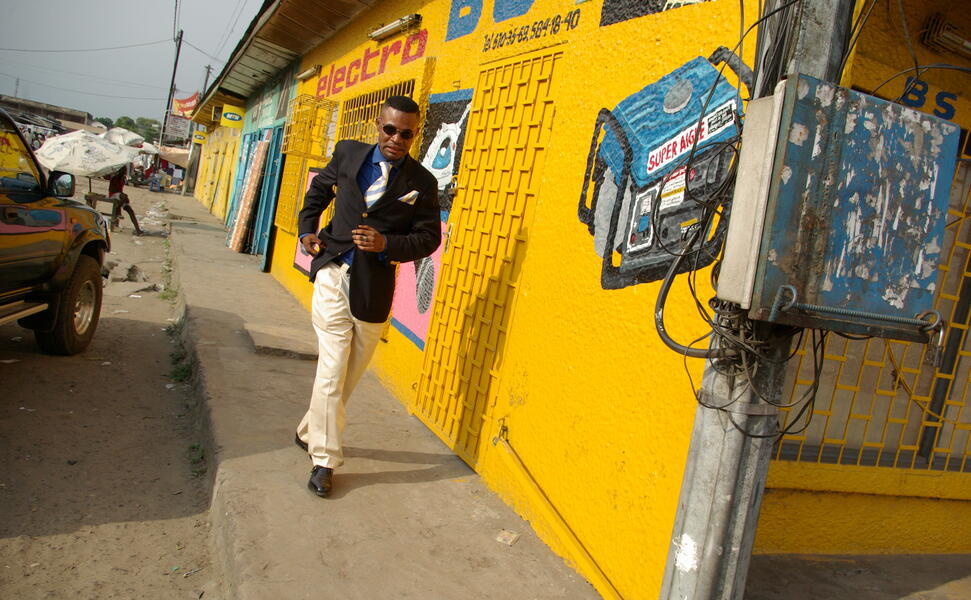
Coca-colonized features a widespread representation of perspectives from artists in the South,Central America and Africa regions, including Anton Kannemeyer (South Africa), Peterson Kamwathi Waweru (Kenya), Baudouin Mouanda (Congo), Cameron Platter (South Africa), Maria Jose Arjona (Colombia), Simon Vega (El Salvador), Omar Obdulio (Puerto Rico), Reynier Leyva-Novo (Cuba) and Emilio Chapela Perez (Mexico). The work on exhibition includes site-specific installation, video, painting, design, sculpture as well as an ongoing public performance by Colombian-born artist Maria Jose Arjona and a permanent bronze installation on the façade of Hilger Brotkunsthalle by South African artist Cameron Platter.
Gallery Ernst Hilger is proud to start the 2nd year of Hilger BrotKunsthalle with a show by long-time friend curator Claire Breukel, after the cutting edge Iran exhibition by renowned curator Shaheen Merali, the exciting Collectors show by Lucie Drdová and Martin Mazanec as well as the Massimo Vitali retrospective currently exhibited till August 28th – Coca-colonized will be a major highlight leading into the 40th year of Hilger Gallery. A satellite of Coca-colonized will travel to the museum Marte Contemporaneo in San Salvador, El Salvador for exhibition in early 2011.
Coca-colonized responds to the ideology that the influence of a mass culture on another, what is termed less established‘ or developing‘ region, implies an absolute relationship between the influencer and the impressionable. This exhibition is an attempt to question this relationship (neither prove or disprove) but provide evidence of how mass cultural influence has been absorbed, reinterpreted and at times rejuvenated in these regions creating a new language in itself.
Furthermore, the exhibition explores how the experience of being considered below (both physically and metaphorically) these Northern counterparts intrinsically connects these new cultural movements with the idea of being outside private spaces. Lack of relevant exhibition opportunity inside formal and prolific private spaces such as museums, galleries, curatorial spaces a traditionally colonialist enterprise creates the need to seek out alternative ways to engage with audiences. These artists therefore, in their own practice, create a new realm of exhibition that is outside‘ and often within the public domain, closer to its audience and a therefore a closer reflector of mass cultural phenomena.
Coca-colonized attempts to reflect this fluidity by literally blurring the lines between exterior and interior explains curator Claire Breukel I admire this group of artists for their ability to be self reflexive of their surroundings. Working from the assumption that artists reflect society, and more specifically being able to represent culture and pre-empt trend, the artists in Coca-colonized reflect viewpoints that integrate, embrace and criticize external mass media influence, and in-so-doing represent a new multi-identity that has integrated in to the core of contemporary life, and which is in itself, a cultural phenomenon.
Hilger BrotKunsthalle is defined as an experimental expansion; crossing over from commercial gallery activities to informational exhibitions; working with young important curators with an open curious mind and giving important artists of the gallery curated retrospective exhibitions in collaboration with leading figures of the art scene (ERRÓ / Jean Jacques LEBEL 2011 in collaboration with Harald Falckenberg a.o. ). All works are available to be acquired for collections.
The founding of Hilger BrotKunsthalle is a further step in the 40 year history of Gallery Hilger defining permanent and active programming and dialogue with contemporary art, with a focus on supporting political art with sociological importance, as well as curators. Hilger BrotKunsthalle‘s obligation is toward documenting and furthering the work of it‘s major artist partners. All exhibitions are accompanied by a catalogue created by Fuhrer Design.
This exhibition is made possible by Galerie Ernst Hilger and Hilger BrotKunsthalle, in collaboration with Michael Stevenson Gallery, South Africa; EDS gallery, Mexico, Anita Beckers gallery, Germany, Whatiftheworld Gallery, South Africa and Afrique in Visu. Special thanks goes to Marte Contemporaneo for their support of the exhibition catalogue.
*The term cocacolonization is used to describe cases where a country's indigenous culture is eroded by a corporate mass-culture, usually from a powerful, industrialized country. This is more metaphorical usage as people need not move, to the colonized country; only cultural signals, symbols, forms of entertainment, and values need to move to the colonized country.

